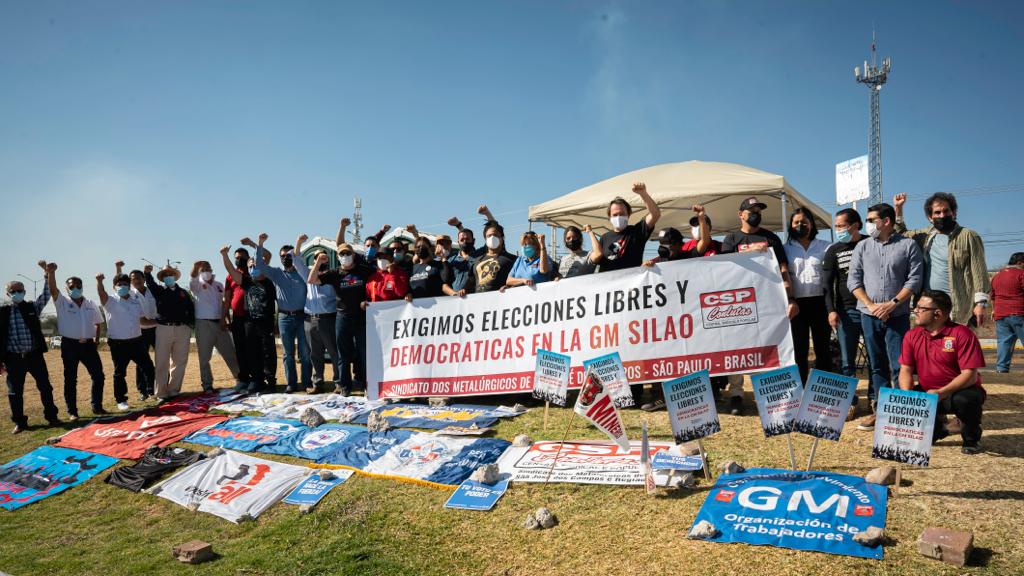
Mexico: Independent Union Wins Landmark Election
The new, independent union, Sindicato Independiente Nacional de Trabajadores y Trabajadoras de la Industria Automotriz (SINTTIA), won the right to represent more than 6,000 workers at a truck plant in Silao, Mexico, in a closely watched election. SINTTIA won the election by a wide margin, defeating the entrenched CTM labor group that had held the contract at the plant for 25 years, and two other groups with ties to CTM.
SINTTIA won with 4,192 votes out of 5,389 valid ballots, in an election with 90 percent turnout. The three CTM unions combined won just over a thousand votes.
The victory happened despite attempts to buy votes and intimidate workers, and threats of violence leveled against union leaders and activists. One of those threatened was SINTTIA General Secretary María Alejandra Morales Reynoso. She spoke about the victory at a press conference.

SINTTIA General Secretary Maria Alejandra Morales Reynoso / Credit: Solidarity Center
“Today is a day in history for Mexican workers,” says Morales Reynoso. ” And we have just begun.”
SINTTIA’s victory could signify the beginning of the end of CTM’s decades-long hold on power. The labor group derived its strength from secret contracts, intimidation of workers and close relationships with Mexico’s previous ruling party and employers, whom they appeased by keeping wages low.
The election is a significant test of the impact of trade reforms, which expand worker rights and establish union votes by secret ballot to validate labor contracts. Mexico’s government estimates that prior to reforms, about 80 percent of union contracts were signed without workers’ knowledge, and helped suppress wages and give employers more control over workers.
At this one truck plant this week, workers were able to overcome corruption and threats of violence to vote out the sham union. Thousands of workers now have a chance at collective bargaining, raising wages and improving working conditions, but much work remains to ensure free and fair elections at thousands of workplaces for millions of Mexican workers.
